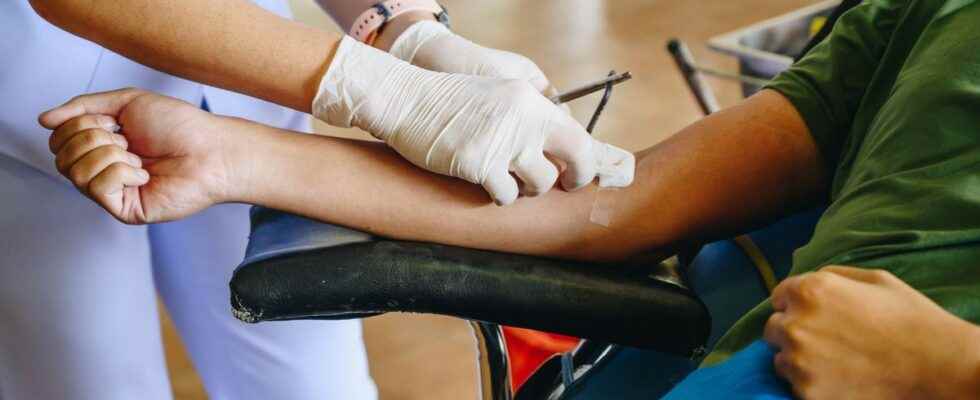Published on
Updated
Reading 2 mins.
Based in Montpellier, in the Hérault, the company Alcediag is currently developing a blood test which would make it possible to detect the presence of bipolar disorders in a patient. An aid to help doctors differentiate this disorder from depression and therefore to initiate the right treatment.
Called Edit-B, this test is developed by the biopharmaceutical company Alcediag, a subsidiary of the French group Alcen. Its objective: to be able to diagnose the presence of bipolar disorders.
Bipolar disorders: a test based on a blood test
Bipolar disorders affect between 1 and 2.5% of the French population, and can therefore affect more than one and a half million people in France. So many patients who sometimes stay for a long time, 7 years on average, in diagnostic wandering, doctors not always knowing how to put a name to their disorders.
Years of suffering which in one out of five cases end in suicide. This psychiatric illness is characterized in particular by the alternation of depressive phases and manic phases. It must be treated with medicines that regulate mood, called mood stabilizers.
In clinical practice, differentiating bipolar disorder (BD) from depression is challenging due to depressive symptoms, which are the primary presentations for both disorders. This erroneous diagnosis during depressive episodes results in a delay and/or errors in treatment. To help doctors initiate the right treatment early, Alcediag has been working for several years on developing a simple test based on a blood test. And which could therefore be carried out easily, in a city laboratory.
A “sensitivity estimated at 90%”
Questioned in West FranceDinah Weissmann, co-founder of the company, explained the mechanism: “Thanks to advances in biology and artificial intelligence, we have demonstrated that there are characteristic RNA editing changes in the brains of depressed people. We then identified specific biomarkers in their blood (…) When the brain malfunctions, it sends signals to the body, like a diseased kidney or liver.“.
In detail, the researchers combined genetic and clinical data with artificial intelligence to identify a combination of 6 biomarkers allowing a differential diagnosis of bipolar disorder versus depression, with a specificity (Sp = 84.6%) and a sensitivity (Se = 90.9%) high. Beyond this study conducted on more than 250 patients and published in the journal Translational Psychiatry, another validation work, which should last two years, began last July.
As a reminder, the sensitivity of a diagnostic test reflects its ability to detect a maximum number of patients (i.e. to have the fewest false negatives), while the specificity of this test is its ability to detect only the sick (have the fewest false positives).
The results of the studies for this test therefore look promising because Alcediag has already announced its marketing for the beginning of 2023 in Italy and Switzerland. In France, discussions between the company and the health authorities are said to be underway for a possible reimbursement by Social Security.
